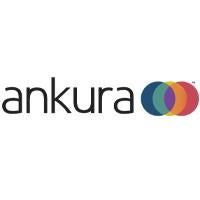On March 2, 2023, Deputy Attorney General (DAG) Lisa Monaco spoke in Miami to the American Bar Association (ABA) National Institute on White Collar Crime. In her remarks, the DAG outlined the Department of Justice’s continued focus on corporate accountability and its connection to United States national security interests. DAG Monaco noted a troubling increase in the intersection of corporate crime and national security, and described companies as being on the “front lines of today’s geopolitical and national security challenges.”
To address this trend, DAG Monaco announced the addition of twenty-five prosecutors to the National Security Division (NSD)’s Counterintelligence and Export Control Section (CES) – and stated that one of these new prosecutors will be a Chief Counsel for Corporate Enforcement. She also announced that the Justice Department will use the model of its Foreign Corrupt Practices Act (FCPA) guidance published in the past with the Securities and Exchange Commission (SEC) to issue periodic joint advisories with the Departments of Commerce and Treasury to inform the private sector about enforcement trends and provide expectations about national security-related compliance, including export controls and sanctions.
In this client alert, we examine three important recent announcements – specifically the creation of the Disruptive Technology Strike Force by the Departments of Justice and Commerce on February 16, 2023, and the issuance (as noted by DAG Monaco above) by the Departments of Justice, Commerce, and Treasury of a Joint Compliance Note on Russia-Related Sanctions Evasions and Export Controls on March 2, 2023. And we also cover announcements in Miami by DAG Monaco and then in more detail by Assistant Attorney General Kenneth A. Polite about updates to the DOJ’s voluntary self-disclosure policy.
Disruptive Technology Strike Force
On February 16, the Departments of Justice and Commerce announced the creation of the Disruptive Technology Strike Force (“Strike Force”). Headed by the DOJ’s NSD and Commerce’s Bureau of Industry and Security (BIS), the Strike Force also consists of representatives from the FBI, Homeland Security Investigations (HSI), and multiple U.S. attorneys’ offices to “target illicit actors, strengthen supply chains, and protect critical technological assets” from acquisition or use by nation-state adversaries. In the announcement, Assistant Attorney General Matthew Olsen stated: “We must remain vigilant in enforcing export control laws, which defend military readiness, preserve our technological superiority over our adversaries, and help to protect human rights and democratic values.” During a panel discussion at the ABA event in Miami, Assistant Secretary of Commerce for Export and Enforcement Matthew Axelrod noted that recent settlements have involved settlement agreements with multiple regulators.
The announcement specifically warned that nation-state adversaries such as China, Iran, Russia, and North Korea seek to leverage advanced technologies to enhance military capabilities and engage in mass surveillance programs and human rights abuses. End users of advanced technologies (including supercomputing and exascale computing, artificial intelligence, advanced manufacturing equipment/materials, quantum computing, and biosciences) may seek to use them to improve weapons design/testing, improve speed and accuracy of military/intelligence decision-making, and break or develop encryption algorithms used in sensitive communications and classified technologies. To further secure this technology, the Strike Force will focus on the following activities:
-
Criminal and administrative
-
Investigate and prosecute criminal violations of U.S. export laws;
-
Enhance administrative enforcement of U.S. export controls
-
Leverage international partnerships to coordinate law enforcement action and disruption strategies
-
Conduct regular training for field offices
-
-
Data analytics and intelligence
-
Utilize advanced data analytics and all-source intelligence to develop and build investigations
-
Strengthen connectivity between the Strike Force and the intelligence community
-
Joint Compliance Note
On March 2, the Departments of Commerce, Treasury, and Justice issued their first Joint Compliance Note (“Note”) with an emphasis on the use of third-party intermediaries and transshipment points to evade Russia- and Belarus-related sanctions and export controls. Assistant Secretary Axelrod observed that companies are the “first line of defense” and indicated that these Notes are meant to inform the private sector about enforcement trends and regulator expectations about national security-related corporate compliance.
The Joint Compliance Note highlighted over a dozen red flags indicating that a third-party intermediary may be engaged in efforts to evade sanctions or export controls. These red flags can be divided into five broad categories:
-
Payments
-
Use of shell companies to conduct international wire transfers, often involving financial institutions in jurisdictions different from those of the company’s registration
-
Payment coming from a third-party country or business not listed on the end-user statement or other applicable end-use form
-
-
Shipments
-
Last-minute changes to shipping instructions that appear contrary to customer history or business practices
-
Routing purchases through certain transshipment points commonly used to illegally redirect items to Russia or Belarus such as China, (Hong Kong and Macau), Armenia, Turkey, and Uzbekistan
-
Transactions involving a change in shipments and/or payments that were previously scheduled for Russia or Belarus
-
-
Business operations
-
Use of corporate vehicles (i.e., legal entities, such as shell companies, and legal arrangements) to obscure: (1) ownership; (2) source of funds; or, (3) countries involved, particularly sanctioned jurisdictions
-
Operation of complex and/or international businesses using residential addresses or addresses common to multiple closely-held corporate entities
-
Transactions involving entities with little or no web presence
-
Complex sales and distribution models that hinder visibility into ultimate end-users of technology, services, or products
-
-
Communications
-
Use of personal email accounts instead of company email addresses
-
IP addresses that do not correspond to a customer’s reported location data
-
-
End-use
-
Customer reluctance to share information about the end use of a product, including reluctance to complete an end-user form
-
Declining customary installation, training, or maintenance of the purchased item(s)
-
Changes to standard contractual vehicles that obscure the ultimate customer
-
The Note recommended that companies mitigate risk in these areas through (1) screening of current and new customers, intermediaries, and counterparties against both the Consolidated Screening List and OFAC Sanctions Lists, and (2) conducting further risk-based due diligence on these entities. Reinforcing that the Note will be the first in a series, the Note also advised companies to consult further advisories and guidance issued by the Departments of Treasury and Commerce.
Voluntary Self-Disclosures
DAG Monaco followed up on her remarks last September, confirming that “absent aggravating factors, no department component will seek a guilty plea where a company has voluntarily self-disclosed, cooperated, and remediated the misconduct.” While the articulation of aggravating factors will remain tailored to each component, the general message to companies from DOJ is the same: the pathway to the best resolution is prompt voluntary self-disclosure.
Building on this message, Assistant Attorney General Polite in his remarks at the ABA event also indicated that the DOJ will want to understand the root causes of criminality – why it happened and whether it will happen again. Companies making voluntary self-disclosures should therefore ensure that their root cause analysis is robust and that committed corrective actions minimize the risk of recurrent offenses. During a panel discussion in Miami, Assistant Attorney General Matthew Olsen announced that the NSD will be issuing an update to the NSD’s voluntary disclosure policy.
COMPLIANCE CONSIDERATIONSTogether these three announcements suggest the increasing interagency and international cooperation in investigations and the potential for joint settlements with multiple regulators should a company have serious violations of U.S. export controls and sanctions laws. They also underline the extent to which regulators expect companies to appreciate their role in national security and the seriousness with which the U.S. Government views attempts by foreign adversaries to obtain access to advanced technologies. With that in mind, legal and compliance leaders should take the following steps:
|
Later this month, Ankura will issue a follow-on client alert examining in detail further announcements made in Miami by DAG Monaco and Assistant Attorney General Polite, including the release of an updated Evaluation of Corporate Compliance Programs with new detail on clawback procedures and management of electronic messaging.
Steve Thomas also contributed to this article.





 />i
/>i

